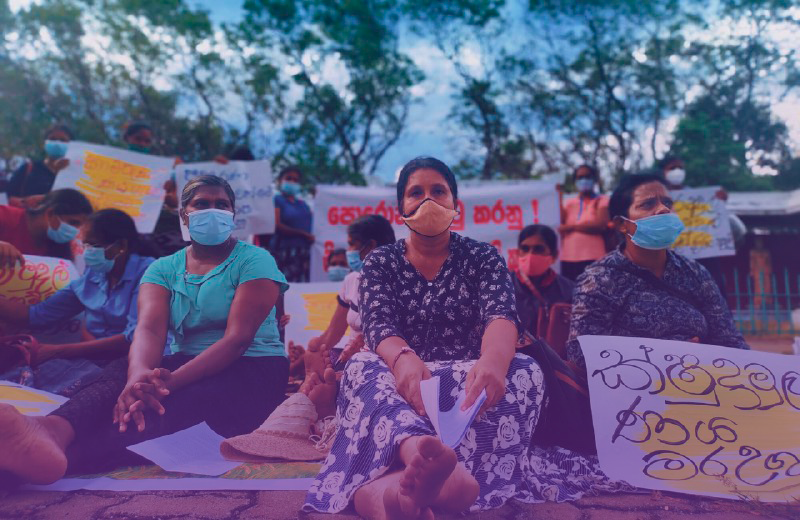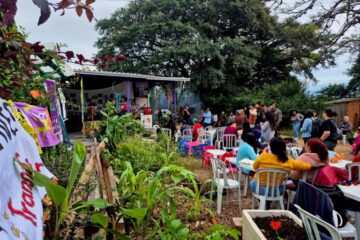Currently Sri Lanka is in a frightening political and economiccrisis and instability. And the main voice in the struggle against it has been women. We are at point where, in the current political economical and imperialistic crisis, women have brought their struggles, from the kitchen to the streets. This has been the reason for everyone in Sri Lanka to get to the road. We can see how the government has become weak in face of women’s voices.
In these current circumstances communications are within women’s contribution towards political stability. My experience as a farmer women, especially in the Asian region, is that women live in a patriarchal society and hence, miss opportunities to raise their voices. In search of alternatives, we have mainly looked at how feminist’s perspectives can be laid and validated in rural communities, and the main approach to do so has been through community radio.
This is the main alternative we selected. We know that through the present capitalist media we don’t receive the required space we need. Hence, our mainly propose is to use community radio as a convenient mode of information sharing. There’s a problem of access to reading and writing within rural community women. They have less time to practice reading and writing because they use most of their time in taking care of children, and farming. Their possibilities to join in clubs or social groups within the community to get-together and share information is at a very low level.
We always try to make this easier by selecting methods that can be effortlessly reached by them, such as listening to radio content. Our effort through the community radio and this communication approach is to build an environment where women can build her rights and abilities, especially within this patriarchal society and political process.
Our biggest experience is that through radio women have built channels where they can voice their ideas without fear. Accordingly we believe that communication is key in this journey towards political change. Communication methods are helpful in finding approaches to confirm their power, especially the mutual understanding within rural and urban women.
We face a huge gap in south Asia when it comes to information sharing because of the language barrier. In La Via Campesina (LVC), we always believe and propose that we need to build spaces where women can easily voice their ideas, share information, share their experiences and through this build their abilities. LVC’s articulation also gives extreme importance on working on this aspect in south Asia. There’s a hesitation amongst women in voicing their opinions in the current culture. Through community radio our efforts are to make women be an active part of the current social change.
Further through this we hope to build access to spaces that they have not had opportunity to access before. These are the kinds of information sharing methods we have opted for in building social change, feminist attitudes and women’s abilities. A main part of this is strengthening communication so we can build active political women’s movements.
We are currently working with young women in building mechanisms to bring rural women’s information, problems and experiences to the forefront through the use of social media. Further we are building capacity within young women to use new technical tools. We are currently building opportunities for women in villages to build leadership in their communities through community radio and national level alternative magazines. As La Via Campesina, we have always selected our communication methods with understanding of the multiple diversities that is present, in order to strengthen our efforts in building women’s leadership. Further through this we have been capable to build women’s leadership that will take them towards political stability and change, in which expression of their opinions are established.
Through our work in the region and even internationally as La Via Campesina and the United Nations Declaration on the Rights of Peasants (UNDROP), we try to build an environmentwhere women’s rights are confirmed. Where their collectivity is affirmed in processes in which they understand their power. Also around the struggles for food sovereignty, what we hope to build is a process in which women’s power is affirmed.
This is our process in taking the voice of rural communities to the international level. Our continuous effort has been to select communication methodologies and politically conscious individuals. Currently there are strong female forces been built around Asia through this information sharing.
______________________
Anuka De Silva is a member of La Via Campesina international committee, representing Sri Lanka. This article is an edited version of her contributions during the webinar “Political Strategies for Grassroots Feminist Communications” held by Capire on July 5th, 2022.




